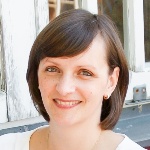Welcome to the Department of Computer Science!
We are pleased that you have decided on a study program in our department. We hope that you will complete an interesting and successful course of study with us. Computer science has a long tradition at the University of Stuttgart. More than 50 years ago, the first computer science program was designed in Stuttgart. There are now several Bachelor's and Master's degree programs in the Department of Computer Science and we are as well involved in cross-faculty degree programs.
If you have any questions about studying and starting your studies at the University of Stuttgart, to which no answers can be found on our website, please contact our program manager Dr. Katrin Schneider.
In order to disseminate information quickly and to improve networking, the Department of Telegram has set up telegram groups for first-semester students and all degree programmes. If you have not received the e-mail with the corresponding link, please contact Katrin Schneider by e-mail.
Questions upon questions
"All beginnings are difficult" or "Every beginning has a magic in it". Whether you stick with the phrase or with Hermann Hesse - from now on a new chapter begins. The beginning of a study changes a lot in your life and much that was organized by others during school days, you now have to take into your own hands. On this page, we have tried to take up the most important topics that first-year students are confronted with in the first weeks and months. We do not claim to be complete. If you have further questions or do not get ahead on a topic, please do not hesitate to contact us.
We wish you a successful start to your studies.
The lectures and exercises of the winter semester 2024/25 will start on October, 14, 2024. The courses will be held in presence
Yes, the winter semester 2024/25 will be a normal attendance semester.
At the university you will not receive a finished timetable. You have to put it together yourself in each semester on the basis of your study plan and on the basis of your wishes for courses in the elective area. But to make it easier for you to get started, we have put together the timetables for our first-year bachelor students:
- B.A. Lehramt Informatik
- B.Sc. Data Science
- B.Sc. Informatik
- B.Sc. Medieninformatik
- B.Sc. Software Engineering
Please note that you have to attend all lectures, even if there are 2 lectures for one subject per week. In addition, (almost) every lecture also includes an exercise. Here you choose a group and register for it during the registration period. Lecture supplements are not compulsory courses, but highly recommended, because they deepen and explain the material further. In addition, you should carefully read the mail about the timetables you have received.
On our course pages you will find all the information that is relevant for your respective degree programme. If you have any further questions, please contact the course manager or your student advisor. The contact details can also be found on the course pages.
There are some important dates that you should keep in mind:
- Introductory week for first semester students: October, 7 to October, 11, 2024 (i.e. BEFORE the start of lecture period)
--> general information from the University
--> detailed information of the student council - Start of the lecture period: October, 14, 2024
- Start of the exam registration period: November, 13, 2024
- End of the exam regostration period: December, 4, 2024
- End of the lecture period: 08. Februar 2025
The slides for the introductory events of October 2 and 9, 2023, respectively, can be found here (and also on the pages of the student council):
- B.A. Lehramt Informatik
- B.Sc. Data Science
- B.Sc. Informatik
- B.Sc. Medieninformatik
- B.Sc. Software Engineering
- M.Sc. Artificial Intelligence and Data Science
- M.Sc. Informatik
- M. Sc. Software Engineering
- M.Ed. Informatik Lehramt / Erweiterungsmaster Lehramt Informatik
- M.Sc. Computer Science - please contact Ms Anstein
The study plans for all degree programmes can be found here:
You have to attend all lectures that are scheduled for the first semester of your degree program. Please note: some subjects have only one lecture per week, others two. With two lectures per week, however, this does not mean that you can choose a date: You have to attend both lectures, as more material is taught in such a subject.
The exercises run as follows: You have to choose one of the offered exercise groups per lecture and participate in it only. The assignment of the exercise groups starts at a pre-announced time in the C@mpus system. Since the allocation system is "first come, first serve", you have to be fast to get into the preferred group. It is also helpful to choose more than one group if the enrollment in the preferred group does not work.
In addition to lectures and exercises, some courses also offer supplementary exercises or lecture exercises. You should also definitely visit these, because here again and again important topics are presented in depth, which could only be touched on very briefly in the actual exercise.
The examination regulations for your degree programme can be found on our degree programme pages. If you have any further questions, please contact the course manager or your study advisor. The contact details can also be found on the course pages.
The student council is a group of students of the study programs of the Department of Computer Science. It represents the student's point of view in official committees at the University of Stuttgart and offers various services for students that are intended to facilitate their studies, such as student advice from a student perspective or lending old exams for exam preparation. In addition, the student council organises events such as hackathons or game evenings.
Further information can be found on the web pages of the student council.
For the study programs offered at the Institute for Natural Language Processing (IMS) the student council natural language processing is another contact.
The student council of the computer science programs (FIUS) offers computer science-specific preliminary courses previous to the beginning of the semester. More information can be found on the website of the student council:
Furthermore, there are several preliminary courses offered by the MINT-Kolleg Baden-Württemberg. These also help to prepare for the study program or to be able to estimate where there may be gaps in your knowledge.
According to the study plan, the number of semester hours per week (SWS) for our degree programmes is around 20 hours per week. However, this only includes attending the individual events. Including preparation and follow-up, you have to double the number of hours at least.
Studying is a full-time job, so plan with at least a 40-hour week.
In theory, you can work during your studies, but we strongly advise against it due to the high workload, at least in the first two semesters, because on the one hand you have to get used to studying at a university and on the other hand you only have limited time for the orientation exam.
C@MPUS stands for Campus Management Portal of the University of Stuttgart.
Courses, timetables, exam registrations, room bookings and much more are managed here.
Students log in to C@MPUS with the user ID you received from the student services (st123456, also referred to as TIK account) and the associated password.
ILIAS stands for Integriertes Lern-, Informations- und Arbeitskooperations-System. It is the learning platform used at the University of Stuttgart. Here you will find important documents and further information about your courses. In most cases, the slides and also the exercise sheets of the various events are made available in ILIAS.
Students log in to ILIAS with the user ID you received from the student services (st123456, also referred to as TIK account) and the associated password.
Each student receives their own user ID for the student services, with which, for example, access to C@mpus or ILIAS is possible. All important information can be found here.
At the beginning of the winter semester, there will as well be an account application course in the Department of Computer Science. Place and time will be announced on the websites.
Further information on various services of the Department of Computer Science, such as WLAN, VPN, certificates, access control, computer pools, etc. is provided by the Central Services for Computer Science (ZDI) on its websites.
The student ID card ECUS (Electronic Card University of Stuttgart) is issued upon your enrolment in the form of a plastic chip card with passport photo. It is equipped with an RFID chip that enables a variety of applications, such as cashless payment or access to certain premises. You can find out everything else about ECUS here.
The canteen and various cafeterias on campus are looked after by the Studierendenwerk Stuttgart. You can pay there with your student ID card. The prerequisite for this is, of course, that you have topped it up with money accordingly. All details and further information can be found on the pages of the Studierendenwerk.
The Federal Republic of Germany supports German students and trainees with financial benefits in accordance with the Federal Training Assistance Act (BAföG).
With BAföG you can finance your studies partially or completely. Although the form jungle seems daunting at first, but if you deal with the topic a little, you will quickly recognize the advantages! Because secured financing will make it easier to study successfully and carefree. All important information about BAföG can be found here.
Plans for the Vaihingen campus or stadtmitte can be found on the central pages of the university.
A detailed building plan for the IT building (Universitätsstraße 38) can be found on the ground floor of the building.

Katrin Schneider
Dr.Program Manager, Department Manager & Erasmus Coordinator of the Computer Science Department

Stefan Zimmer
Dr.Academic Advisor Computer Science




